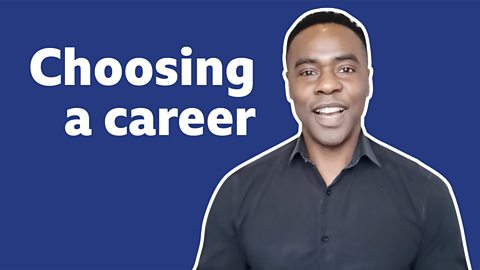
If your teenager is coming to the end of their full-time education, you may already be thinking about the big question “What’s next?” One option could be for them to "earn while they learn" and apply for an apprenticeship.
Apprenticeships have changed a lot in the past twenty years. You may associate them with trades but the options have broadened to include lots of sectors and roles, from aerospace engineering to zookeeping. They can offer a variety of qualifications up to the equivalent of a master's degree.
We’ve pulled out the top five tips from The Bitesize Careers Podcast, from award winning careers coaches Mark Anderson and Shoshanna Davis to help you discuss apprenticeships with your teenager.

Tip 1: Do your own research

The first thing you can do is arm yourself with up-to-date facts about apprenticeships.
Exact opportunities differ depending on where you live, but in general, an apprenticeship is a paid role that combines hands-on work experience with off-the-job training. It usually involves doing four days (or 80% of the time) at work and one day a week (20%) to study.
A good place to start is this FAQ article, which covers questions like "what is an apprenticeship?" and "how do you get an apprenticeship?". You could read this together and make a list of the pros and cons of doing an apprenticeship to ensure your teenager has fully thought it through.
Encourage them to speak to people who are doing or have done apprenticeships in a field they're interested in. This will give them a first-hand account of what an apprenticeship is like day-to-day.

Tip 2: Discuss which type of apprenticeship could suit them
There are many different apprenticeships your teenager can do. If they don't yet know what career pathway appeals to them, it can be overwhelming. It's important for them to decide if they're looking for an apprenticeship that starts straight after secondary school, or whether they want to embark on further or higher education first. There are options at different levels in a variety of sectors. You can start to narrow down the apprenticeship search by deciding which level best suits your teenager and what qualifications they might need.
The next step is to explore the type of apprenticeship they might be interested in. One way to start is by identifying the skills they would like to use most in the workplace.
Jobs can be generally categorised into at least one of the following groups:
- Working with people
- Working on practical tasks
- Working with information or data
- Using written communication or numerical skills.
Discuss with your teenager to what extent you've used skills from these categories in your own work or what your preferences are, and ask which category they feel will suit them and why.
Tip 3: Identify the skills they will need

Once your teenager has an idea of the type of apprenticeship they want, it's time to find out about the opportunities available in your area. Look at examples of apprenticeship vacancies that might appeal to them and explore the required skills and qualities that are mentioned in the job description.
It’s important to remember that employers understand that your teenager is young and probably won't have much work experience. Talk to your teenager and help them identify the skills they use in other areas of their life. These skills could have been gained through studying subjects or through extracurricular activities like their hobbies, sports or clubs. These skills can often transfer into apprenticeships and job roles. You can also discuss what activities they could engage in to develop their skills further.

Tip 4: Support them with applications
Many apprenticeship roles will require submitting an application form and/or a CV and cover letter. Writing any of these for the first time can be daunting, but with a little help it doesn’t need to be. A good place to start is the CV toolkit, which guides you through every part of writing a CV, from how to format it, to how to write a personal profile. It'll help your teenager understand the soft and technical skills that employers are looking for and how to communicate them clearly.
Along with a CV, your teenager may have to provide a cover letter. This is their chance to speak directly to the employer and explain why they want to work for the company and why they should hire them. Before they write a cover letter, encourage them to read the job and course description carefully so that they can clearly demonstrate the skills and/or qualifications required for that specific job within the letter.
Tip 5: Prepare them for an interview

It's great news if your teenager gets an interview as it means they have already impressed their potential employer! A good way of preparing them for an interview is by helping them research the company. You can then talk about the type of questions they may be asked and encourage them to prepare some of their own questions too.
Being in an interview situation can sometimes feel like speaking another language. A good way to get them used to talking about themselves is to practise a short presentation focusing on their strengths and transferable skills, and what they would like to develop. Your teenager will likely not be used to speaking so positively about themselves, so ask them to practise with family, friends and even in front of a mirror.



You can watch every episode of The Bitesize Careers Podcast on the website, or listen on BBC Sounds.
The Bitesize Careers 'College, apprenticeship and uni' page has information on a range of pathways available, including vocational qualifications and university.
The Parent and Carer Zone from Amazing Apprenticeships offers advice on supporting your teenager as they explore the options.
The below government websites can provide specific information related to where you live:
This article was published in January 2025

Explore more
Parents' Toolkit
Fun activities, real-life stories, wellbeing support and loads of helpful advice - we're here for you and your child.

The Bitesize Careers Podcast: Is an apprenticeship right for me? videoThe Bitesize Careers Podcast: Is an apprenticeship right for me?
Radio 1's Katie Thistleton discusses the vast world of apprenticeships with career coach Mark Anderson and Amazon apprentice Jasmine Shum.

How to support your teen as they decide on their future career
Career coach Mark Anderson has advice for parents of teens who are choosing their options at GCSE or are nearing the world of work.

Jobs of the future: What will our children be doing in 2040?
Thanks to technology the world of work has changed faster than ever in recent years - so what jobs might our kids be doing one day?

What I learnt from my first job
Hear from BBC apprentices about what they learnt in their first ever jobs and how it's helped in their careers.

